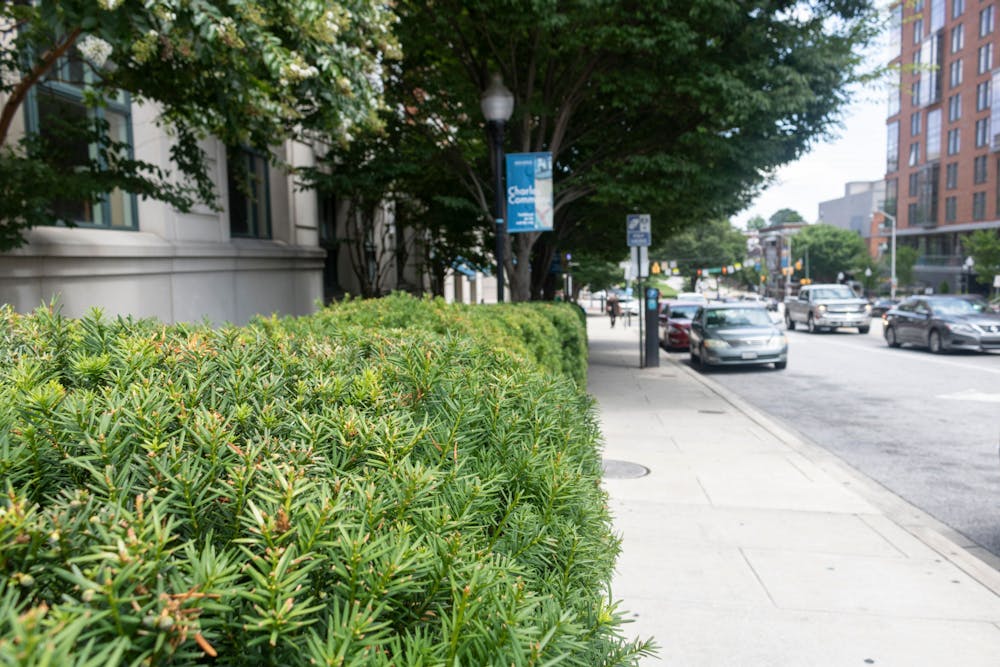In January, the University’s Inheritance Baltimore project received a $4.4 million grant from the Just Futures Initiative of the Mellon Foundation. The initiative was created to tackle social equity issues in light of the racial injustice protests that took place in 2020.
The grant focuses on projects that use history as an avenue to promote social and cultural change. The Mellon Foundation invited teams from several universities and colleges to propose novel ideas to address racial injustice. In response, Hopkins proposed Inheritance Baltimore, a project led by a multidisciplinary team composed of staff from Sheridan Libraries and members of the Billie Holiday Project for Liberation Arts and Program in Racism, Immigration and Citizenship (RIC).
Initially, Nathan Connolly, director of RIC and professor of History at Hopkins, developed the Inheritance proposal as a threefold response to the issues highlighted by Just Futures.
Kali-Ahset Amen and Lawrence Jackson of the Billie Holiday Project for Liberation Arts collaborated with Connolly and Stuart Schrader, the associate director of RIC, to create Inheritance Baltimore. The team brought in Joseph Plaster and Gabrielle Dean from Sheridan Libraries to develop multiple approaches to further their goals, which, according to Plaster, include both research and curation.
“JHU’s awardees will conduct a multi-year research, programing, curatorial and archival effort committed to reparations in Humanities education and Arts-based public engagement for and with Black Baltimore,” Plaster wrote in an email to The News-Letter.
Lauren Anthony, a junior majoring in History, admired the value of the project’s work to examine history and bring light to the systemic issues that founded the institution.
“This project is extremely valuable to forge a new path for the future of humanities — a path to emphasize the importance of cultivating and preserving the history of the Black community in Baltimore in order to continue to combat institutional racism at Johns Hopkins and similar institutions,” she said.
For the first aspect of the proposal, Inheritance Baltimore partnered with Orita’s Cross Freedom School to create a curriculum that expands the Black history educational opportunities offered at the school through classes and additional programming.
Connolly hopes to publish this curriculum to contribute to the larger, nationwide conversation about freedom education. They are developing strategies to teach in-person and via digital platforms and are creating summer programs to provide additional exposure.
RIC aims to be a consistent source of support for the school in creating anti-racist curricula. Eventually, Connolly aims to partner with the Ingenuity Project, an organization that provides advanced science, technology, engineering and math training for students in Baltimore City Public Schools. He plans to create additional cultural content for Black students who are not receiving programming in their own schools.
The second goal is to reform the doctoral education at Hopkins to better prepare PhDs to advance equal representation of all races and create anti-racist policies in their workplaces.
Schrader hopes to bring these ideas to Hopkins and create a freshman seminar. The seminar will be a space for students to actively engage in practical conversations about racism.
The third objective is to research the history of how academic departments developed at Hopkins and document the racial history of programs. RIC is spearheading efforts to look into University archives and interview past affiliates to map out the inheritance of Hopkins with regards to its prestige in the academic realm.
In an interview with The News-Letter, Connolly laid out the question motivating the project’s goals.
“To what degree can we imagine a reparations program that redirects the inheritance of the University’s elite stature, prestige and resources in ways to bring about anti-racist or democratic outlook?” he said.
He explained that he wants to direct resources to the preservation of racial literacy and employ archival practices to preserve the inheritance of Hopkins. Plaster and Dean will spearhead the preservation project.
Plaster also plans to preserve Baltimore’s Black, queer and trans history and celebrate this history by developing an oral history program. This project will be built in collaboration with local grassroots organizations. An integral component of this project, Plaster said, is that the Baltimore community functions as a partner in research.
“The [Sheridan] Libraries will put collaborative process in place to identify, steward and exhibit materials in ways that are collaborative with communities and in which students can be involved,” he said.
He seeks to cultivate an exchange of knowledge between Hopkins and the Black community. The team particularly wants to preserve the experiences of long-term Baltimore residents who have witnessed social justice and activism in the city.
RIC plans to host public engagement events in the future. However, they have not started planning these, since they are still bringing new fellows onto the project.
While the particulars are not set, according to Connolly, the project’s overall vision is clear.
“In the same way that a place like Hopkins is really committed to rolling out a coronavirus response, improving water procurement in central Africa or building a better drone at the Applied Physics Lab, we should be equally committed to solving the problem of white supremacy... patriarchy... [and] bias against transgendered folks in historical terms,” he said.





